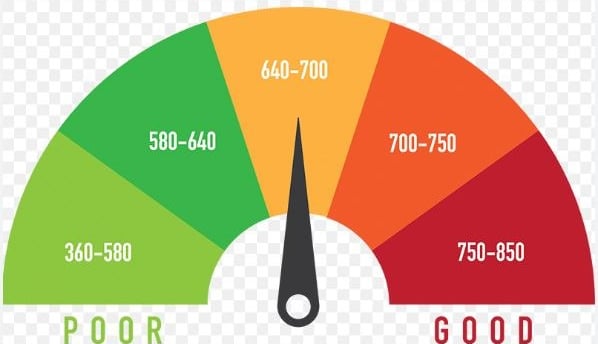What is a Credit Score and Why is it Important?
Get to know what is a credit score and why is it important
CREDIT SCORECREDIT CHECK


Credit Scores are a numerical summarization of a person’s credit risk and are commonly used by lenders when assessing someone’s financial health and approving credit applications. Your credit score is one of the primary components used by lenders to make decisions about credit products and services, so having a good credit score can make an immense difference in your life.
What is a Credit Score?
A credit score is a three-digit number ranging from 300 to 900, with higher numbers indicating a better, more responsible credit history. It’s based on your credit activity, which indicates how likely you are to repay a loan. Lenders use the score to determine whether or not to approve you for a loan or credit card, how large of a loan you can obtain, and what interest rate you’ll pay.
Credit scores are generated by credit bureaus and are used by lenders to gauge a person’s credit worthiness. Each credit bureau may have a different score for an individual due to the difference of information reported to them or different scoring methods.
Importance of Credit Score
Your credit score plays a large role in your ability to obtain new credit—whether it’s a loan, a line of credit, or a new credit card. A low credit score can lead lenders to reject your application, or to provide unfavorable loan terms, such as a small loan amount or high interest rate.
Having a good credit score is also essential if you want to enjoy the convenience and rewards that come from using a major credit card. For example, most of the loyalty programs offered by travel and retail companies require a high credit score.
Your credit score is also important for your personal financial security. You need good credit to qualify for low home mortgage and car loan interest rates. If you plan to start a business, a strong credit score may make it easier to obtain an initial line of credit and start building your business.
How to Improve Your Credit Score
Although it may take time to significantly improve your credit score, there are some steps that you can take right away:
Pay your bills on time. Late payments are one of the main factors used to calculate your credit score, so make sure that you pay your billsers on time.
Pay down your debts. Reducing your overall debt can greatly improve your credit score. Focus on paying down high-interest debt, such as credit card debt.
Don’t close any old accounts. Even if you are no longer using an account, it’s best to keep it open. This will help to keep a greater balance of credit available versus what you are currently using.
Monitor your credit. Request copies of your credit report from all three major credit bureaus annually or use a free online service to monitor your credit. This will help you to identify any errors or fraud that may be negatively impacting your credit score.
Avoid applying for too much credit. Applying for too many loans or credit cards will actually cause your credit score to go down.
What to Watch Out For
There are a few things to watch out for when it comes to managing your credit. Some of these include:
Don’t open too many accounts in a short time. Applying for too many accounts can result in too many hard inquiries, which can lower your credit score.
Don’t make large purchases or take out too much debt in a short amount of time. This can indicate money problems and lenders may hesitate to approve you.
Be aware of credit repair scams. Be careful when working with credit repair companies or services, as these can often be scams.
Don’t ever miss a payment. Missed payments are one of the biggest factors affecting your credit score, so make sure that you always pay your bills on time.
Conclusion
Your credit score is an important indicator of your financial health and stability. A high credit score can open the door to better loan terms and credit cards rewards, while a low score can make it difficult to obtain new credit. By understanding how your credit score is determined and taking the necessary steps to improve it, you can ensure that you have a positive financial future.